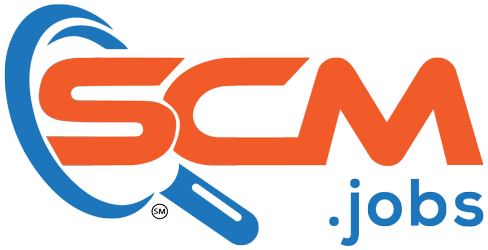No Strategy For Supply Chain Management Career - You Don't Know What Will Work
You've learned many different career strategies for your supply chain career, but you weren’t doing anything because you thought your job was safe and your career was on track. One day, you get the call from the boss letting you know someone else was promoted or worse, you’ve been let go.
Now you need a job and you're trying every trick in the book, all at once, so you're all over the place. The better option is to have a plan that you’re constantly working to get you to the next level. With a plan, you can choose one strategy that you know will work.
But how do you know what will work?
Easy answer: You don't.
But proactively marketing your supply chain management career portfolio isn't about throwing things against to wall to see what sticks. It's scientific. Professionals who operate as CEOs of their career try something out and monitor, learning through trial and error. If you're trying to do too many things at once, it's impossible to focus adequately on each strategy to see
what is working.
The key is to take a good, calculated guess and choose a strategy you think will work. Then, implement it and monitor the results. What are the results telling you? How do you know if it's working? If you've chosen one clearly defined goal, this is easy to do.
A good way to do this is to work backwards. Start with the goal and ask yourself, "How will I know if I've reached my goal or not?" Choose metrics that are measurable. Set up milestones along the way that will tell you whether you're nearing your goal or not.
With a good goal, a good metric to measure, and milestones to help you chart your progress, you can implement your strategy and watch your progress.
For example, your ultimate goal is to be a CEO of a large company, so you have to break that goal into chunks or career milestones. The idea is to consistently work in positions and on projects that get you to the next position. The strategy you've chosen is to move from buyer to manager where you lead a team of supply chain professionals. You need projects where you are in charge and responsible for the results.
So, you ask your boss for projects that put you in charge of people. Within 30 days, you should see action moving you to projects and teams that build your skills. Within 60 days, you should become a leader of a group or project. At the end of six months, you should be in charge of a project. If not, there's a problem and you need to examine further.
When you ask for these opportunities, two things are accomplished. One, your boss begins to think of you as a leader and puts you in projects to build your skills. Two, if your boss doesn’t take action to help you, you learn it’s time to find a boss by either moving to a different department or changing companies. Either way, you’ve learned something.
Don’t forget that maybe it’s not your boss. Maybe it’s you. This means you need show more leadership skills by leading yourself to get more education or certifications that qualify you for these opportunities. Make the appropriate changes, and keep asking for more projects. Then, measure your results and you'll know immediately whether the changes you made were the right ones.
Seasoned supply chain professionals proactively seek out opportunities and that's how they learn. After some time repeating this process, they know exactly what skills they need and what opportunities exist in and out of their company. It becomes part of your career strategy arsenal.
The purpose of SupplyChainManagement.Jobs is to be the premiere resource for professionals in the supply chain management community. Here you will find employment opportunities from companies seeking to hire supply chain management professionals. Plus, you will have access to resources to make you more competitive for employment opportunities in the supply chain industry. Resources for people will include how to get hired, skills training, freelance opportunities, and executive recruitment for the supply chain management community. You will be part of a community of supply chain management professionals where you can post your professional resume, exchange ideas, discuss issues, and engage in conversations.
